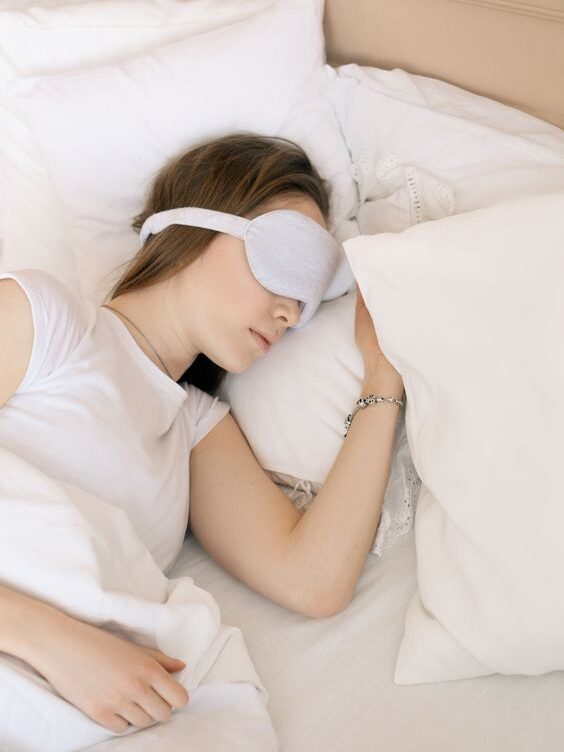Many people underestimate the strong connection between sleep and mental health. Getting quality sleep is essential for your emotional well-being and can help reduce anxiety and depression. When you struggle to sleep, your mental health may decline, creating a cycle that can be hard to break.
Understanding this link can empower you to take control of both your sleep habits and mental wellness. Simple changes in your daily routine and sleep environment can make a significant difference. By prioritizing good sleep, you not only enhance your mood but also boost your ability to cope with stress.
With practical tips and strategies, you can learn how to improve your sleep and, in turn, support better mental health. From lifestyle choices to creating the right atmosphere for sleep, you have the power to make positive changes that benefit both your rest and your overall well-being.
Key Takeaways
- Quality sleep is crucial for emotional well-being.
- Poor sleep can lead to anxiety and depression.
- Simple lifestyle changes can significantly improve sleep quality.
Understanding the Sleep-Mental Health Nexus
Sleep plays a significant role in your mental health. Exploring how sleep impacts conditions like depression, anxiety, and other psychiatric disorders reveals the vital connection between these two areas. Certain sleep disorders can worsen mental health symptoms, while mental health issues can also disrupt sleep.
The Role of Sleep in Mental Health
Sleep is essential for emotional regulation and cognitive function. Lack of sleep can lead to increased symptoms of depression and anxiety. Research shows that people with insomnia experience much higher rates of these conditions compared to those who sleep well.
Chronic sleep deprivation can influence circadian rhythms, which affect your mood and behavior. This disturbance can trigger or worsen mental health issues like bipolar disorder and schizophrenia. It’s important to recognize that better sleep can lead to improved mental health outcomes.
Common Sleep Disorders and Mental Health Conditions
Various sleep disorders are linked to mental health problems. For example, comorbid insomnia often appears in those with ADHD and PTSD. This means that these individuals may struggle with sleep while also facing significant mental health challenges.
Additionally, conditions like autism spectrum disorder can disrupt sleep patterns, influencing overall well-being. Sleep issues can lead to increased stress and emotional difficulties, creating a cycle that is hard to break. Managing sleep effectively is crucial for improving your mental health.
Consequences of Sleep Deprivation on Mental Health
Sleep deprivation can significantly affect your emotional and cognitive functions. Lack of sleep may lead to mood changes, memory issues, and even heightened anxiety. Understanding these effects can help you recognize the importance of good sleep hygiene and its role in maintaining mental health.
Emotional and Cognitive Implications
When you experience sleep deprivation, your mood can become negatively impacted. Irritability and increased emotional responses to stressors are common. You might find yourself feeling more anxious or depressed.
Your cognitive abilities also suffer. Poor sleep can lead to difficulties with memory, making it hard to concentrate or recall information. In some cases, this can escalate to more severe symptoms, like nightmares or even psychosis, particularly with prolonged sleep loss.
Long-Term Health Risks Associated with Poor Sleep
Chronic sleep deprivation carries several long-term risks for mental health. Research shows that it can increase your likelihood of developing conditions like depression and anxiety.
Moreover, it may play a role in cognitive decline, raising worries about Alzheimer’s disease. Maintaining a regular sleep schedule can reduce these risks, enhancing your emotional and cognitive resilience. Prioritizing good sleep is crucial for your overall well-being.
Strategies to Improve Sleep Quality and Mental Health
Improving sleep quality can significantly enhance your mental health. Specific practices and treatments can help you achieve a better night’s rest and reduce stress.
Developing Effective Sleep Hygiene Practices
Good sleep hygiene is essential for quality sleep. Start by creating a regular sleep schedule. Go to bed and wake up at the same time every day, even on weekends. This helps regulate your body’s internal clock.
Make your bedroom a comfortable and calming space. Keep it dark, quiet, and cool. Consider using blackout curtains and white noise machines to minimize disruptions.
Avoid caffeine and large meals close to bedtime. Instead, try relaxing activities like reading or gentle stretching. Limit screen time from devices before sleep, as blue light can interfere with your ability to fall asleep.
Behavioral and Psychological Treatment Approaches
Cognitive-behavioral therapy (CBT) can be highly effective in improving sleep and mental health. CBT helps you identify and change negative thought patterns related to sleep.
Another option is light therapy. This involves exposure to bright light to help reset your sleep-wake cycle. It is especially useful if you struggle with seasonal affective disorder (SAD).
If you’re feeling overwhelmed, talk to a psychiatrist about your mental health. They can recommend therapies or medications that suit your needs. Stress management techniques like mindfulness and meditation can also play a role in enhancing sleep quality by reducing anxiety and promoting relaxation.


Impact of Lifestyle Choices on Sleep and Mental Well-being
Your lifestyle choices can significantly affect both your sleep quality and mental health. Two key factors that stand out are exercise and diet, along with maintaining a consistent sleep-wake cycle. By addressing these areas, you can improve your overall well-being.
Exercise and Diet Considerations
Regular exercise can boost your sleep quality and mental health. Engaging in physical activity helps reduce symptoms of anxiety and depression. Aim for at least 150 minutes of moderate exercise each week, such as brisk walking or cycling. This can increase your energy levels and motivation throughout the day.
Your diet also plays a crucial role. Foods rich in omega-3 fatty acids, like fish and walnuts, improve brain health. Incorporate fruits, vegetables, and whole grains for better energy levels. Avoid heavy meals and caffeine close to bedtime. These choices can disrupt your sleep and lead to poorer mental health outcomes.
The Importance of a Regulated Sleep-Wake Cycle
Maintaining a regular sleep-wake cycle is essential for your circadian rhythm. Going to bed and waking up at the same time each day helps align your body’s internal clock. This can improve your sleep cycle and enhance your overall mood.
Limit exposure to screens before bedtime. The blue light emitted by devices can interfere with melatonin production, making it harder to fall asleep. Also, create a calming bedtime routine to signal to your body that it is time to wind down. A consistent routine can lead to deeper, more restorative sleep and help you feel more refreshed during the day.
Creating a Conducive Sleep Environment
A good sleep environment can greatly improve your rest and overall well-being. Key factors include your sleep schedule and how you manage your surroundings and behaviors at bedtime.
Optimizing Your Sleep Schedule
To enhance your sleep quality, stick to a regular sleep schedule. Aim for a consistent bedtime and wake-up time, even on weekends. This helps regulate your body’s internal clock, leading to better sleep patterns.
Consider maintaining a nightly routine that signals your body it’s time for bed. This can include calming activities like reading or stretching. Avoid naps longer than 20 minutes, as they can disrupt your sleep at night.
If you find racing thoughts are keeping you awake, try writing your worries down before bed. This can help clear your mind and prepare you for restful sleep.
Addressing Environmental and Behavioral Factors
The environment you sleep in plays a crucial role in your sleep quality. Keep your bedroom dark, cool, and quiet. Use blackout curtains to block out light, and consider a white noise machine if you live in a noisy area.
Your behaviors before bed also matter. Stop using screens at least an hour before sleeping, as the blue light can interfere with melatonin production. Limit caffeine and heavy meals in the hours leading up to bedtime.
Address bedtime procrastination by setting a clear time for lights out. Stick to this as part of your routine, making sleep a priority to improve your mental health.


Frequently Asked Questions
Understanding the relationship between sleep and mental health can help you improve your well-being. Here are answers to common questions about how sleep affects your mental state and what you can do to enhance your sleep quality.
How can improved sleep contribute to better mental well-being?
Better sleep can enhance your mood, improve focus, and reduce anxiety. Quality rest helps regulate emotions and stress levels, making it easier for you to face daily challenges.
In what ways does sleep deprivation impact psychological health?
Lack of sleep can lead to increased feelings of stress, anxiety, and depression. You may also experience difficulties in concentration and decision-making, affecting your daily life and relationships.
Which psychiatric conditions are commonly linked with sleep disturbances?
Conditions like anxiety disorders, depression, and bipolar disorder often have a strong connection with sleep issues. People with these conditions may find that their symptoms worsen when they do not get enough restorative sleep.
What are the long-term mental health consequences of chronic sleep loss?
Chronic sleep loss can lead to serious mental health issues over time, including persistent anxiety and depression. It can also increase your risk of developing other psychiatric disorders.
How does acute sleep deprivation affect cognitive and emotional functions?
Acute sleep deprivation can impair your memory, attention, and problem-solving abilities. Emotionally, you may find yourself more irritable and less able to cope with stress.
What strategies are effective in promoting restorative sleep for enhancing mental health?
To promote restorative sleep, establish a consistent sleep schedule, create a relaxing bedtime routine, and make your sleep environment comfortable. Avoid screens before bed and limit caffeine intake in the hours leading up to sleep.





